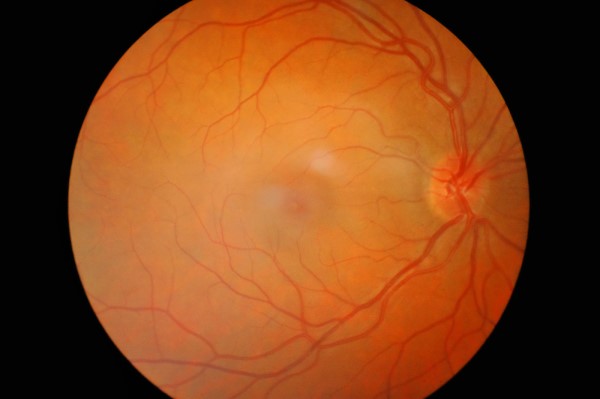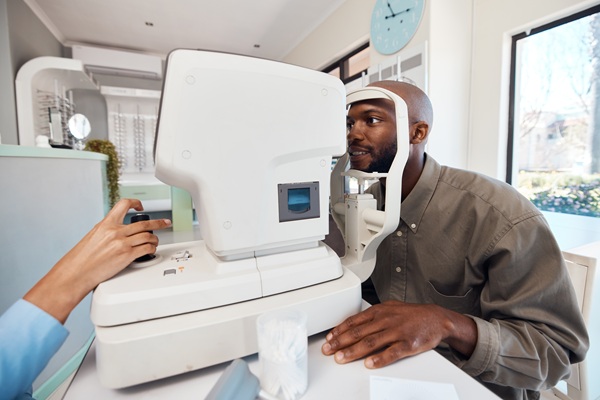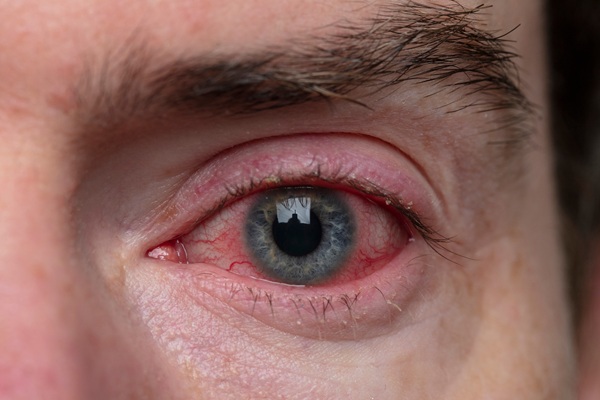The Importance of a Diabetic Eye Exam

Diabetic retinopathy, including non-proliferative and proliferative forms, diabetic macular edema (DME), and quick cataract progression are possible complications for diabetic patients that may require a diabetic eye exam to diagnose. The early phases of diabetic retinopathy normally have no visual symptoms but are a powerful indicator of how far along your diabetes may be, which makes an annual diabetic eye exam crucial for patients. The National Eye Institute estimates that early diagnosis, rigorous monitoring, and personalized treatment may lower your chance of irreversible vision loss by 95 percent. The following are some of the reasons why a diabetic eye exam is so important for good vision.
The need for diabetic eye exams
Preventing diabetic retinopathy and its complications
The first step in screening for diabetes abnormalities in a patient's eye is a fundoscopic exam, which includes dilation of the eyes and a close examination of the retina. Moderate and severe alterations may need treatment with injections or laser therapy, whereas minor changes may be monitored over time. Twenty percent of diabetic individuals may develop retinopathy as early as the time they are diagnosed. To determine the health of the eyes and prevent major complications, patients should get a dilated retinal exam.
Identifying additional eyesight issues
With diabetes, the risk of developing eye conditions such as cataracts and refractive errors doubles. The eye doctor can help uncover these abnormalities early on so that patients can begin treatment immediately.
A clouding of the eye's natural lens, known as a cataract, happens as people age. Many people do not understand just how much their diabetes affects their lives until it is too late. Optometrists may be able to remove the cataract early on and restore eyesight to its former glory. Following the dilated eye exam, the eye doctor can explore the treatment choices in more detail.
Uncontrolled blood sugars may cause a person's refraction (glasses prescription) to alter, which is commonly overlooked. When a patient's glasses seem to work well one day, then fail the next, it may be quite upsetting to the patient. An eye exam might reveal this subtle but significant alteration.
Get tips for good eye health
To maintain healthy eyes, the optometrist will advise patients to use preservative-free artificial tears, check their lens and retina, and update their prescription glasses if necessary. Regular eye exams will provide the information and skills needed to deal with any visual issues that may arise.
An overview of diabetic eye examinations
The same visual acuity tests that the optometrist would do during a routine eye exam will be performed. Retinal cameras or dilated retinal exams will be used to examine the health of the eyes. Dilated retinal exams enable the doctor to examine the back of the eye and look for probable symptoms of diabetic retinopathy with unique eye drops. Some of the things the doctor will be looking for include fatty deposits, swelling, nerve tissue damage, leaking blood vessels, and visceral or ocular changes.
The frequency of diabetic eye exams
Optometrists recommend that patients get a full diabetic eye exam as soon as possible after being diagnosed with type 2 diabetes. Pregnant women with type 1 or 2 diabetes should see their optometrist once a year for an eye checkup.
The first thorough diabetic checkup for patients with type 1 diabetes should be performed within five years after diagnosis, and yearly screenings should be performed after that. A full diabetic eye exam is critical since diabetic retinopathy and other eye disorders may develop in about 20 percent of people who have been diagnosed with diabetes.
Reducing the risk of diabetic retinopathy
Preventing diabetic retinopathy begins with routine optometric examinations for diabetic eye disease. Regular eye examinations may provide a sense of how one's general health is being affected by diabetes and provide the opportunity to begin treatment for any eye issues before they become a problem.
Individuals can lower their risk of eye disease by keeping their blood sugar, cholesterol, and blood pressure under control with the help of their primary care physician, maintaining a healthy weight by following a balanced diet and engaging in regular physical activity, and avoiding smoking.
Book a diabetic eye exam today
Schedule regular health checkups, but do not forget eye checks. Eye doctors understand the need for frequent eye examinations, particularly for spotting early indications of diabetic retinopathy. When it comes to eye care, you can access a wide range of treatments, including a diabetic eye exam. Contact the eye doctor's office today to get started.
Request an appointment here: https://www.texasoptical.net or call Texas Optical at (214) 771-7333 for an appointment in our Dallas office.
Check out what others are saying about our services on Yelp: Diabetic Eye Exam in Dallas, TX.
Recent Posts
Contact lens exams are fundamental to maintaining clear vision and promoting overall eye health. Many individuals rely on contact lenses for daily activities, sports, and social events, yet consistent monitoring of lens fit and eye condition often receives less attention than it deserves. An optometrist specializing in evaluating the cornea, tear film, and general ocular…
Red, irritated eyes can result from something as simple as fatigue or dryness. However, persistent or severe symptoms may indicate a more serious condition requiring red eye treatment from an optometrist. Understanding when those everyday symptoms become something more serious is key to protecting long-term vision and avoiding complications. Catching the signs early on and…
Vision health is an important part of your everyday life. When urgent and unexpected issues arise, you must seek emergency eye care from an optometrist. Whether the issue results from trauma, infection, or sudden changes, immediate attention from an optometrist can prevent complications and preserve your long-term ocular health.Individuals may need emergency eye care for…
A myopia optometrist can help manage and slow the progression of nearsightedness, especially in children and young adults. Nearsightedness, or myopia, causes distant objects to appear blurry while close-up vision remains clear. Without proper care, myopia can worsen over time, leading to higher prescriptions and an increased risk of eye health problems.Myopia occurs when the…


